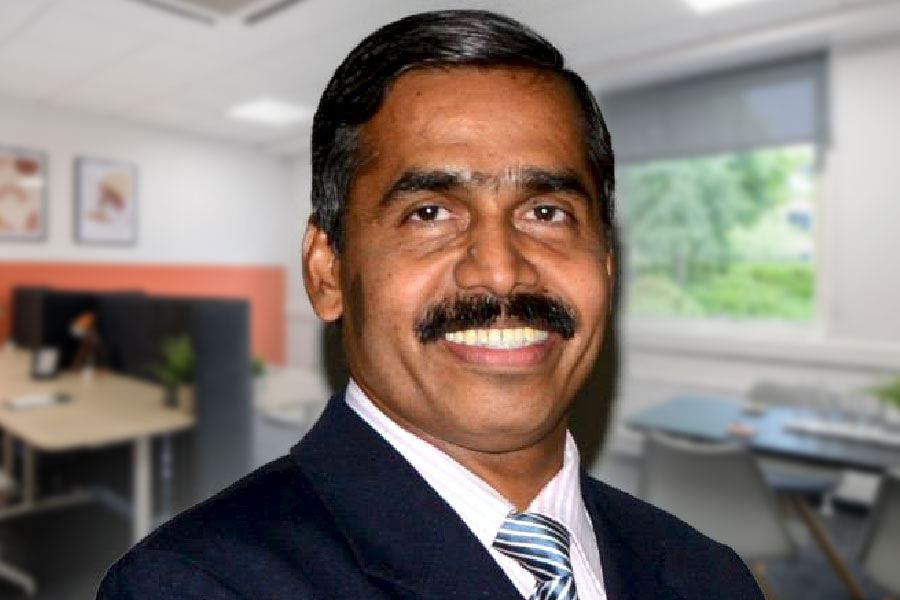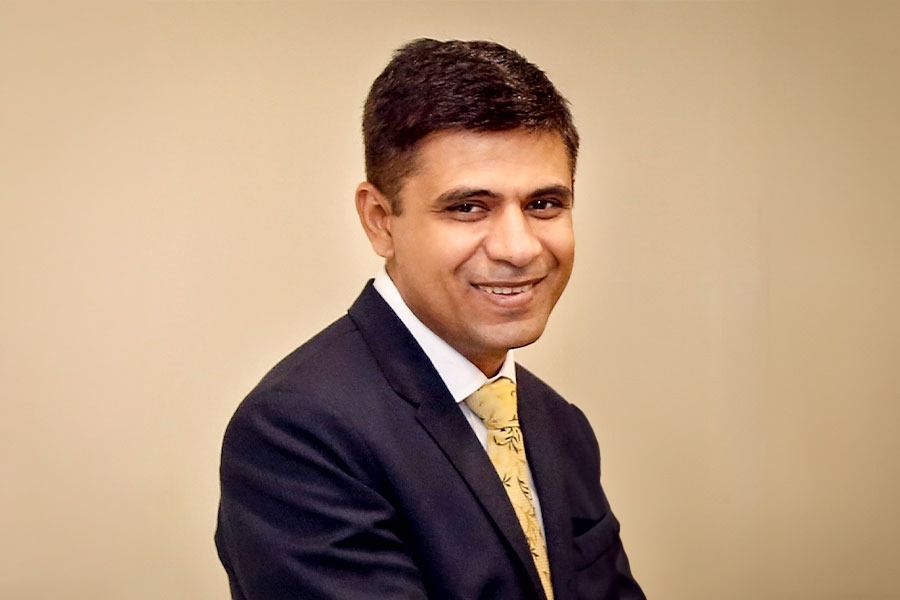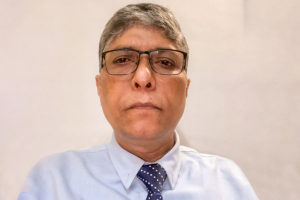COVID-19 could set back globalisation clock by 5-10 years
Prof. P Rameshan, Indian Institute of Management Kozhikode opines that the whole COVID-19 pandemic episode is likely to set the globalization clock back by at least 5-10 years, notwithstanding the protective tendencies visible in major nations like USA even before the onset of the pandemic. Regional free-trade agreements are actually within the spirit of WTO agreements since regional FTAs are a precursor to a global FTA, he adds. India will be wise if it exploits the trend.

IBT: According to some industry bodies, COVID-19 will create a trend toward a more fragmented and protectionist global economy, with higher restrictions on trade, investment and technology transfers. How is this expected to impact trade dynamics and economic growth across developed and developing nations?
Prof. P Rameshan: In the short-run (this & next year), there is no alternative for countries except strengthening/ establishing their own production systems/supply networks to meet the pandemic disruption/challenges. China will face loss of goodwill & barriers, but not others.
In the medium run (say, 3-5 years from now), there could be a tendency to be protective/self-sufficient due to the lingering fears (about disruption, risks & partner treachery) left behind by the pandemic. Again, friendly/ trustworthy nations may be affected much less.
But, in the long run, there is a possibility of developing multiple new global supply sources, as the issues of scale, cost & competition will start playing up again. At this stage, new developing/emerging countries will start rising as supply sources & markets while developed countries might once again assume their usual role, albeit with checks & balances.
Nonetheless, the whole COVID-19 pandemic episode is likely to set the globalization clock back by at least 5-10 years, notwithstanding the protectionist tendencies visible in major nations like USA even before the onset of the pandemic.
IBT: What factors will determine the relative pace of trade recovery across exporting countries. How do you view India’s post-COVID export performance (till September), potential and challenges in the coming quarters vis-a-vis other major developing countries?
Prof. P Rameshan: For the world, the most crucial element will be the speed of recovery of the source countries from the pandemic & its after-effects.
For India, two factors are crucial in the medium run:
(a) How fast the country manages to control the epidemic & recovers from its consequences
(b) How fast our production systems are expanded/strengthened to create exportable volumes to tap the new opportunities & our infrastructure/logistics systems are revamped/developed to support the expanded volumes of exports.
In the long-run, however, through a rapid effort, our ease of starting & doing business should improve fast enough to attract existing & new foreign investors disenchanted with China & motivate new entrepreneurs/investors in India. Priorities would include roads, ports, airports, post-harvest preservation/processing facilities in agriculture/rural belts, grass-root education & health facilities, law & order (particularly that part affecting business operations), large swathes of land identified & well-developed to attract large FDI/domestic investors, easy access to raw materials/inputs/labour, & so on.
Unfortunately, our past records since 1991 show that we have always been very slow in seizing opportunities/rising up to expectations. Will we be able to break the jinx this time?
IBT: Recent WTO projections about the decline in global trade by 9.2% over its April projection of 12.9% shows optimism but the trade was mainly driven by healthcare and COVID-19 products. Which other product categories do you see driving trade growth as countries recover from the impact of lockdowns and why?
Prof. P Rameshan: Since early this year, the top priority of almost all countries has been to arrest the spread of the virus & deal with its consequences. But, after several months of frantic efforts, the virus is still raging. Except for the perpetrator China, nobody has any clue as to when they will see daylight in the tunnel.
The fear & movement restrictions caused by the virus have reduced activities including production, purchases & consumption, except for the necessities. This also reduced imports of consumption goods & industrial inputs. Tax collections have fallen due to disruptions as well as declines in transactions/activities. Yet, countries have worked hard in the past few months to ensure that medical supplies & other essential products are made available to the world – this probably resulted in a slowdown in anticipated decline.
So, when a recovery happens & incomes available to the public & the government grow, more of both consumption goods & industrial/infrastructural inputs are likely to be demanded – thereby promising growth in the export/import of these goods. For India to benefit from this recovery, however, it has to quickly act/reform to rejuvenate/expand production systems & logistics.
IBT: Given the rising protectionism and lack of consensus, can we expect a more decisive shift to the bilateral/regional trade engagements? Given past experience, how should India adapt its approach to FTAs going forward and which partners should be prioritised?
Prof. P Rameshan: Protectionist/bilateral/regional tendencies had started even before the onset of the pandemic, mainly due to emerging right-wing politics in many major countries. The pandemic-related fear & distrust only gave further jitters – that spread even to other relatively open countries. This trend is likely to continue at least in the medium run – to ensure that no future disruptions occur in times of a similar crisis, more regional arrangements could emerge. Regional free-trade agreements are actually within the spirit of WTO agreements since regional FTAs are a precursor to a global FTA.
India will be wise if it exploits the trend. In fact, China or Vietnam being free to export their competitive products anywhere in the world (i.e., through global free trade) is not particularly beneficial to India, because India doesn’t have that kind of competitiveness in many areas that China or Vietnam enjoy. However, if India can exploit the trust issues of the world (whether in OECD or ASEAN), with China in particular, by having more bilateral or regional arrangements with them (leveraging India’s better goodwill created during the pandemic) to provide supplies that China provided earlier, it will be great for India (while it will also diminish China’s global profile).
Of course, we should avoid any FTA where China is present (for reasons of competitiveness, not geo-politics); to ensure mutual benefits/utility & sustained interest, we should also be careful in negotiating FTA to ensure that the partner country is both a source of our needed inputs & a market for our export products (not vice versa: it should not be a source of competing products or one that cannot benefit by supplying inputs to us).
We should also carefully analyse what we can export & what we need to import, before identifying potential partners & negotiating with them. In short, selecting partners for bilateral agreements should be done carefully; but, once selection is done, we should act to finalize & execute the agreement rapidly, without loss of time.
IBT: What impact will the countries resorting to shortening their supply chains and making domestically-oriented policies have on operations of MNCs and consumers across the globe?
Prof. P Rameshan: So long as encouraging domestic production is done through FDI or to diversify away from distrusted countries like China or countries (such as China) against which we have huge trade deficits, it might not create a global backlash – provided we are able to take care of the WTO safeguard provisions. If we can offer cheap source of exports through reforms & other efficiency-enhancing measures, MNC exporters/consumers of their export destinations will also benefit. Weakening China through curtailing imports from China is also a politically positive development for all countries in the world threatened by China’s arrogance/treachery. However, the whole approach should be calibrated by considering the sensitivities of desirable partner countries.
IBT: Globally, countries are panicking on food security and hoarding food products. Being a leading food producer with a surplus, what opportunities does this provide India and how should it leverage the same?
Prof. P Rameshan: India’s surplus is not stable or applicable to all important crops – take the case of foodgrains, pulses, sugar etc: depending on the climatic conditions & other relevant factors, the surplus keeps varying (sometimes even causing India to import them in large quantities). Often, export of items like onions has caused even political upheavals. No country is going to trust a supplier who cannot ensure sustained supplies of products – especially in essentials such as food. Hence, if we have to get access to global food markets in a consistent way, we must plan our agricultural production & surplus – so that adequate quantities of each relevant crop are available as exportable surplus at all times.
Obviously, a lot of investments will be required in modernization of agriculture – irrigation, technology, various productivity-enhancing actions/processes, cold-storages, other post-harvest facilities, agro-manufacturing facilities & so on. Our usual approach in the past has been making big statements & then hoping that everything will happen on its own. That will not work. A comprehensive plan for entire Indian agri-sector was never made in India in the past. We need a comprehensive plan & commensurate efforts at execution.
Prof. Rameshan has a Ph.D. from India’s oldest IIT and was in the profession of higher education since 1992. He has been associated with IIMs since 1997 and IIM Kozhikode since 2002. During his 21 years with IIMs, he had handled roles of Director, Dean, Professor and Board member. He has extensive experience in executive education and management development. Views expressed are personal and do not reflect the views of the organisation he represents.













Leave a comment